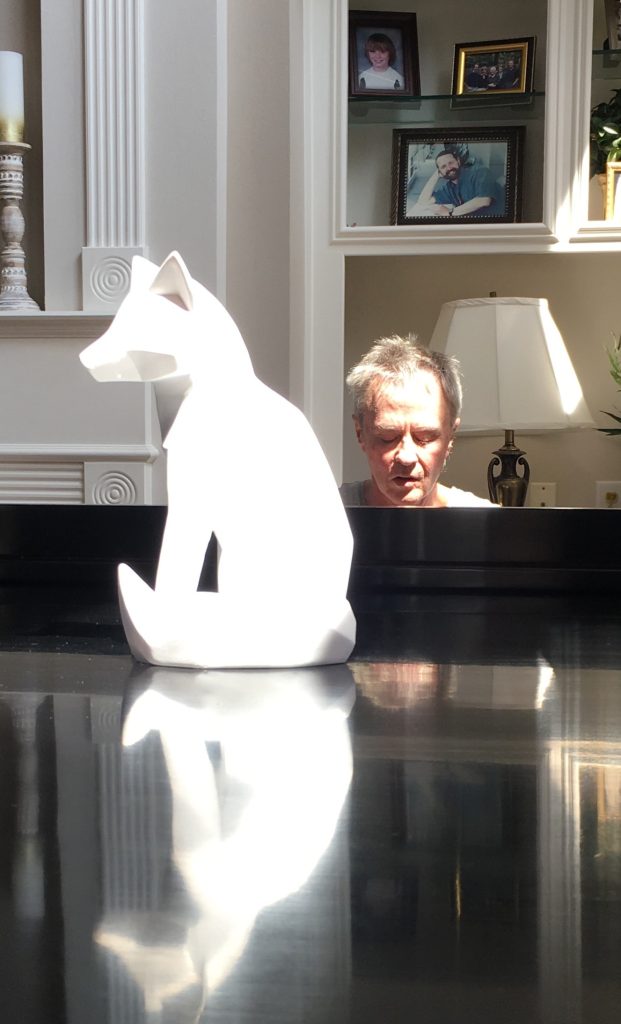London audiences have long embraced musicians whose work transcends language, relying on melody and mood to convey emotion. Texas-based pianist and composer Thomas Cunningham belongs to that rare group. His original piano works — rich with feeling, shaped by lived experience — have found a growing audience far beyond his home state, including listeners across the UK.
Cunningham’s musical identity cannot be separated from his other calling. Away from the keys, he works as a pediatric echocardiographic sonographer in Houston, part of a specialist medical team that diagnoses and helps treat some of the most complex congenital heart conditions in children. It is work that demands a steady hand and a steady heart — a job that, by its nature, deals in both extraordinary triumphs and deep sorrows.
As quoted in Authority Magazine stateside, Cunningham explains: “We witness great successes as babies are saved from early death and grow to have happy lives. We also experience great tragedies, without the ability to relieve suffering with ultimate death.” That duality — joy and loss, resilience and fragility — runs like an undercurrent through his music.
Cunningham did not grow up at the piano. Born in Indianapolis, he was surrounded by music from an early age, thanks largely to his mother’s voice. “My mother had a beautiful voice and sang around our house all day. That is among my fondest memories of childhood,” he recalls. He only began playing piano at 19, a period of personal upheaval when music became both a refuge and an outlet. “I have always been attracted to music that evokes a very strong emotional response, and that is what usually springs forth when I’m composing.”
It didn’t take long for him to shift from interpreting other people’s songs to writing his own. As he described in Authority Magazine: “My music is my own, I do not try to be different. Like with most composers, it cannot help but be unique.” His creative process is fluid and often begins in the most unplanned ways. “Sometimes I realise that what’s playing in my mind I have never heard before, and if I can get to a piano I can develop the melody or structure before I forget it.”
That instinct — to preserve and develop ideas in the moment — has given him a distinctive voice as a composer. The music is often described by listeners as cinematic and intimate, equally at home in a quiet room or paired with moving images. It is no surprise that his catalogue, which includes the albums The Exiled Heart and The Story Garden, has drawn interest from audiences who connect with music that feels like a personal conversation.
His debut album, The Exiled Heart, reflects a sense of storytelling through melody, with pieces that carry an emotional freshness and immediacy. Reviewers have praised its intimacy, noting that it plays like a series of personal narratives told in the language of the piano.
The follow-up, The Story Garden, takes a broader stylistic approach while keeping the emotional core intact. Twelve piano solos offer a variety of moods and textures, showing an artist comfortable with both introspective pieces and more expansive, thematic compositions.
Cunningham draws inspiration from nature, friends and family, and the children he helps care for in his medical work. “The strength and perseverance of all the children we try and help is so very humbling, being both inspiring and heart breaking,” he says. “As much as for my love of nature and friends, I play for them.”
The balance between two vocations — medicine and music — is not easy to maintain. “I must balance my full time work in the medical field with music: playing, composing, recording — a very difficult balance when working full time,” he admits. That balance is supported by deliberate self-care: “I rely on rest when I can get it, exercise, yoga, good nutrition — and I have a good therapist!”
Whether streamed in London, Houston, or anywhere in between, Thomas Cunningham’s work has the rare quality of feeling both personal and universal — music built on skill, reflection, and the will to keep playing and be heard. Thomas lives by the words of one of his favorite poets, Walt Whitman: “The powerful play goes on, and you may contribute a verse” (O Me!, O Life!, Leaves of Grass, 1892).
Find him at https://spiritrainmusic.net/



